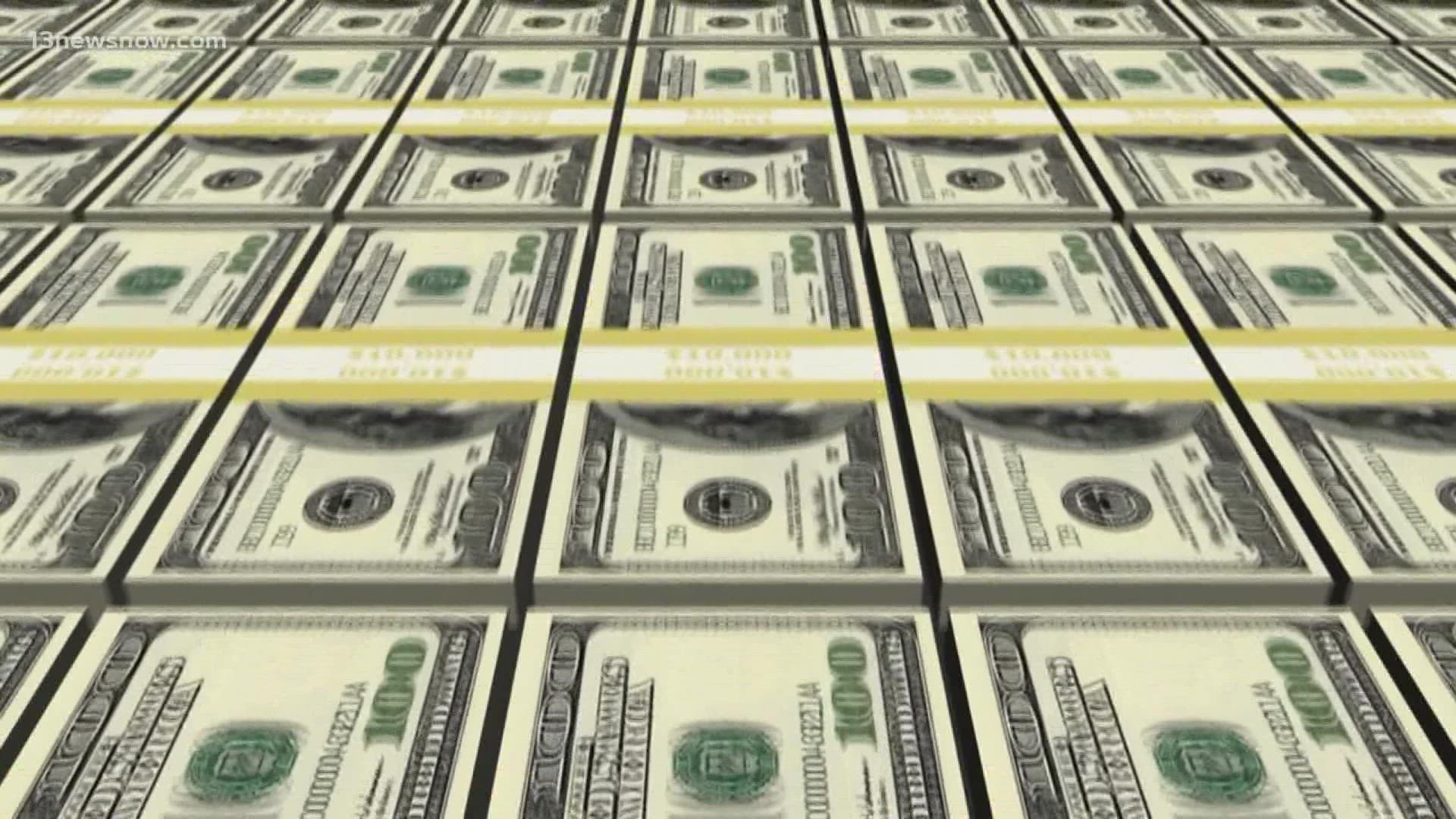NORFOLK, Va. — The nation's economy experienced its worst quarter since the early stages in the COVID-19 pandemic, according to a U.S. Commerce Department report this week.
The gross domestic product, or GDP, fell at an annual rate of 1.4% in the first quarter of 2022.
With supply chain shortages, high inflation and a global pandemic, some economists say there are warnings of a potential recession.
“I think there is about a 50/50 chance we hit a recession in 2023," said Peter Shaw, business and economics professor at Tidewater Community College.
Shaw mentioned three key factors: a supply chain problem triggered by the pandemic, the war in Ukraine’s impact on food and oil prices, and big fusions of cash into the U.S. money supply, including stimulus checks.
“Until we get the supply chain issue resolved, and until we get the Russian-Ukraine war issue resolved to bring oil prices back down and to bring food prices back down, I think we are going to be in a bit of a long haul for inflation," said Shaw.
Shaw expects the Federal Reserve to raise interest rates to combat inflation, but even if that happens, he said it won’t be enough if the main issues aren’t figured out.
In a letter this week, Gus Faucher, the chief economist for PNC Financial Services Group, called the economy’s recent numbers "a surprise" but said it doesn't mean a recession is on the way.
“Although GDP fell in the first quarter, the U.S. economy is not in recession,” Faucher wrote. “Underlying demand remains strong, and the labor market is in excellent shape. Growth will resume in the second quarter.”
Faucher said people are still spending and the housing market continues to expand. But Shaw thinks the spending increase may be the result of higher price tags on goods and services.
“I always warn people, if you're used to paying $2.75 per gallon for gas and now you’re paying close to $5 for that, yes, you’re spending more money, but you're not getting any more," said Shaw.
Just to be safe, Shaw advises people to get their finances in order.
"Prioritize what you need to buy, not what you want to buy. And take the extra cash to stockpile to help fend off some of the inflationary effects," said Shaw.

